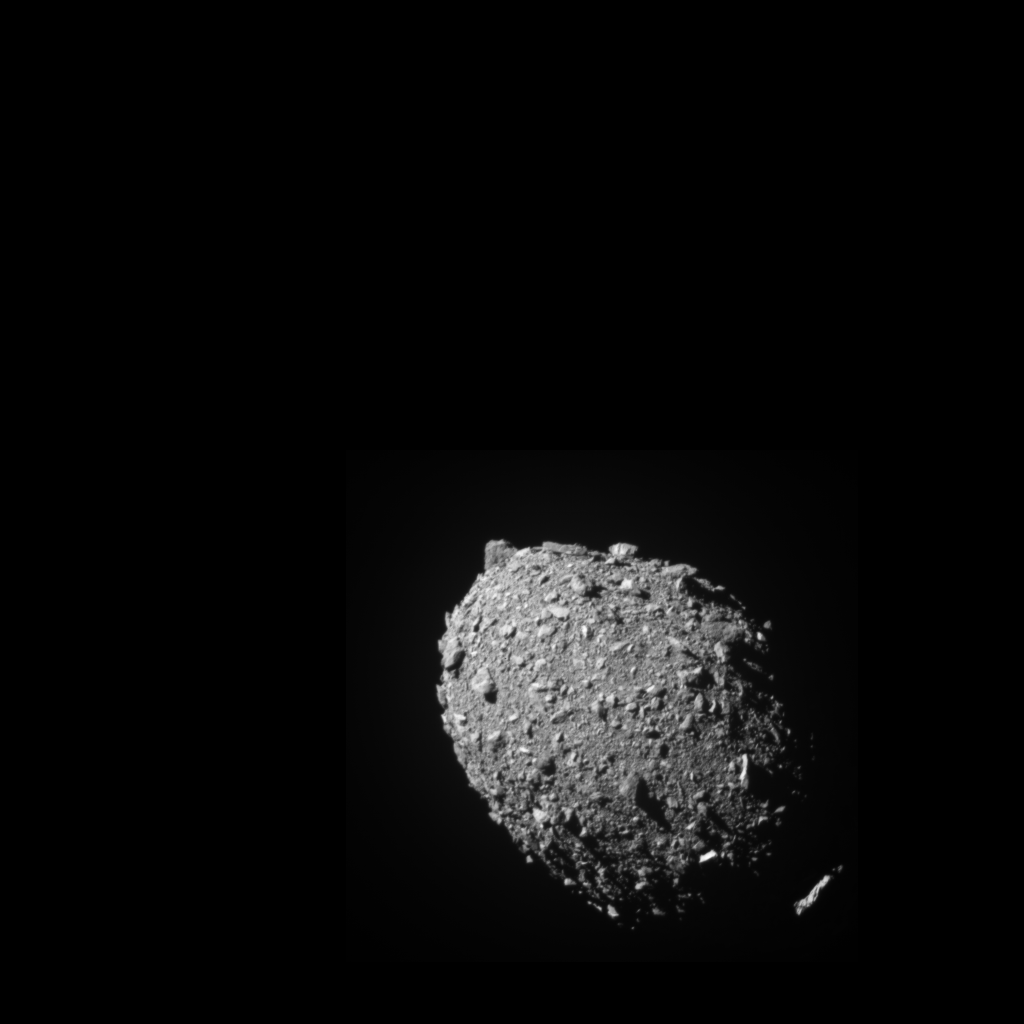Congratulations to NASA for pulling off what can only be called the first trick shot in the name of planetary defense, a hyper-calculated physics-heavy feat possible only via either a Division II college hoops wash-out riding the influencer wave on TikTok, or countless hours of precise planning and billions of dollars in scientific research. Thanks to NASA's DART mission, we're likely one step closer to being able to defend this otherwise vulnerable oxygen- and water-sphere we call home from all manner of holy hell raining down on us from an unforgiving cosmic interstate system intent to casually destroy us.
DART's final moments before crashing into an asteroid 6.7 million miles away from Earth earlier today 😲 pic.twitter.com/GFeWP6UdQM
— Latest in space (@latestinspace) September 27, 2022
After 10 months stalking its prey, an unsuspecting 560-foot asteroid known as Dimorphos, DART (Double Asteroid Redirection Test) entered the echelon of space-traveling heroes when it gloriously crashed itself into the space rock just past dinnertime on the East Coast Monday night. The physics involved here are high above my head as a simple Midwestern blog farmer, but the idea is straight out of high school science class: We transfer kinetic energy from lil' DARTy by slamming it into the merciless Dimorphos, who just happens to be orbiting a larger and presumably even more dreadful rock called Didymos, estimated to be five times the size of lil Dimo.
If the plan works, we'll just have hurled, and obliterated, a $325 million satellite the size of the break room vending machine into a asteroid roughly the size of MetLife Stadium, just to gently nudge that rock's even larger boss slightly out of the way.
That last part we won't know for some time, as scientists continue to study the data from the impact with data and observations from telescopes around the world. In the meantime, those same telescopes gave us a glimpse of some of the interstellar demolition derby we initiated last night:
ATLAS observations of the DART spacecraft impact at Didymos! pic.twitter.com/26IKwB9VSo
— ATLAS Project (@fallingstarIfA) September 27, 2022
Earth was not in any real danger—the collision happened around seven million miles away, and neither asteroid was heading our direction—but watching DART maneuver through space was strangely gripping even if human existence was not hanging in the balance this time.
Naturally, despite my best intentions I missed it. Somewhere between browning sausage and simmering sauce, DART fulfilled its destiny, leaving me to rush to the TV only to find a control room full of keyed up engineers and a dead signal from our bravest robot astronaut. That the room full of console jockeys were wrapped up in just as much drama as the rest of us watching made for a more intimate explosion; on the final four hours of its flight DART was on its own, no longer capable of receiving corrections or instructions from the team here on earth.
It's been quietly a great year for trying to understand the vast and strange expanse that hangs above us. The images delivered this summer from the James Webb Space Telescope made us all collectively lose our shit at the wild, vast, and chaotic beauty of the stars. And now, thanks to the DART program, we know humanity can still push back should that swirl of iridescent terror chuck something in our general direction.
That's pretty damn exciting. Humans taking the time to understand our place in something so much bigger than us is a virtuous goal! The joy of that room full of engineers over one small satellite crash, the exuberance of astronomers already scrolling through images of DART's date with Dimorphos; it's the genuine zeal that comes with seeing science made real in ways even your best estimates could never tell you. We should celebrate that.
I'm sure our militaristic and colonizer-friendly society could in no way use these advances for less than noble outcomes that would lead to our destruction from unseen extraterrestrial forces. Best not to think about it, anyway, and make sure we keep sending our fleet into the stars to satisfy our curiosity and our robot astronauts' growing hunger for asteroid meat.






